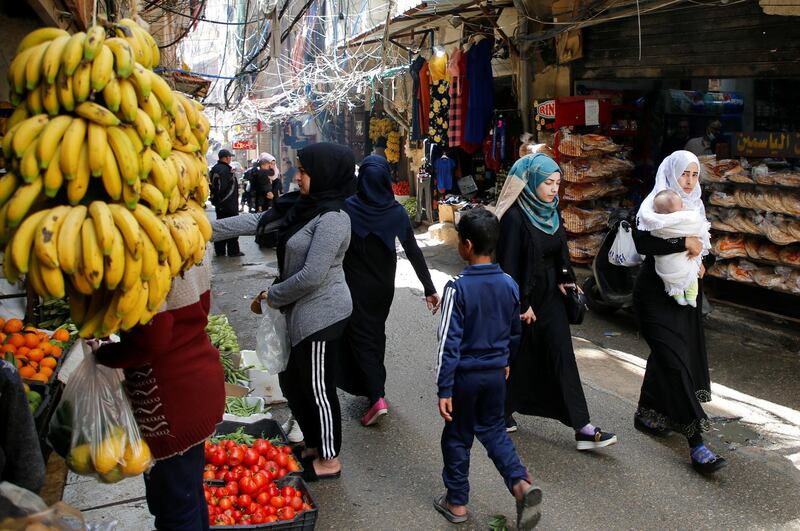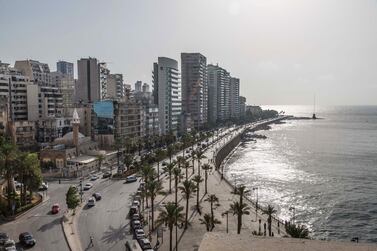Lebanon's private sector shrunk at a slower pace in April, with business conditions hitting an 18-month high due to a slower decline in output and new orders.
The Blom Lebanon PMI, which measures operating conditions in the Lebanese private sector, rose to 47.1 in April from 46.4 in March, but remained below the 50.0 mark that separates growth from contraction.
The PMI reading was driven mainly by slower contractions in output and new orders, with rates of decline easing to the slowest since October 2019 in both cases. The index was also helped by the easing of higher input and output cost burdens due to a weaker exchange rate coercing inflation upwards. Additionally, employment appears to have stabilised with wages registering a marginal decline, according to the survey.
"Despite all this, prospects regarding future business conditions and output remain [at a] record low for the coming year, subsequent to Lebanon’s economic instability in the absence of government formation efforts and economic reform programmes,” Fadi Osseiran, Blominvest Bank's general manager, said.
Lebanon is in the grip of the worst economic crisis in three decades. The Lebanese pound, or lira, has lost more than 80 per cent of its value against the US dollar. Inflation, which soared to 158 per cent in March, has increasingly pushed people below the poverty line following the country's default on eurobonds. Banks have all but cut customers off from their dollar deposits.
Firms "remained extremely pessimistic towards the 12-month business outlook", according to the survey. Sentiment remained at "rock bottom" for the third month running with some panellists expressing concerns about the country's political instability and the economic crisis.
A deadlock over the government's cabinet formation since last October over disagreements on the number of ministers, distribution of portfolios and veto power in line with the country's sectarian power sharing system has raised the spectre of violence. Lebanon has had three notable periods of civil strife in its history – the first dating back to the 1860s, the second in the 1950s and its longest started in 1975 and lasted 15 years.
In December, the Institute of International Finance said a lack of political will to implement real reforms is pushing the country's economic trajectory toward that of a "failed state".
Half of Lebanon's population may fall into poverty unless it institutes reforms, improves social protection measures and widens the pension system, the World Bank said in December. Poverty reached 45 per cent of the country's population in 2019, compared with a third in 2018 and 27.4 per cent in 2011-2012, while extreme poverty reached 22 per cent in 2019, according to the Washington-based lender.








